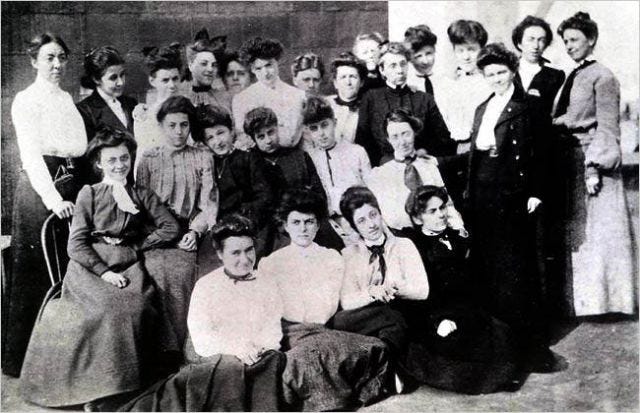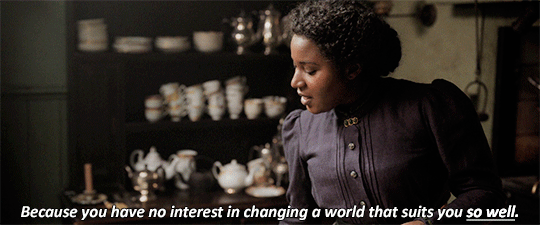Lady Business: The biggest risk in business right now is grief; RBG, Breonna Taylor, and our previous lives
Hello, and welcome to Lady Business, a newsletter about women, the business world, and all the ways they overlap. You can sign up for Lady Business and read previous issues here. This is the 111th issue, published September 27, 2020.
Grief upon Grief upon Grief
“We’re mourning the death of our previous lives.”
About a month ago, with the pandemic’s grim milestone of 200,000 U.S. deaths inexorably approaching, I started asking people how they are doing, really, at work—and how work is doing, really, at recognizing all of the losses they’ve suffered this year.
The answer, unsurprisingly, is not great! On either account:
“Grief is not anything we’ve ever tackled well in the workplace. Businesses don’t usually recognize it, but it actually has a huge financial impact,” says David Kessler of Grief.com, who coauthored two books with Elisabeth Kübler-Ross and wrote Finding Meaning: The Sixth Stage of Grief. “Employee productivity is so impacted by loss, and loss is everywhere right now.”
Long before the pandemic, grief was estimated to cost employers up to $75 billion every year in lost productivity, while employee burnout caused up to $190 billion in health care costs every year. Those expenses are certain to skyrocket after this year, in which at least 1.8 million Americans are estimated to have already lost a relative to COVID-19. More than half of adults in the United States have seen their mental health worsen due to worry and stress during the pandemic, and 75% of employees are reporting burnout at work, with 40% reporting burnout specifically during the pandemic.
Now grief experts, mental-health professionals, physicians, and human resources executives are trying to get corporate America better prepared to handle the biggest risk in business right now—one that, unlike COVID-19, can’t eventually be contained by a vaccine. The effects of this year’s grief and mourning will linger far into the future, they warn—and for employers who are relying on a nationally traumatized workforce, this fallout needs to be addressed as directly as any other business risk.
“Trauma and grief and loss really impact productivity, and people’s ability to concentrate and to be resilient,” says DeLisa Alexander, an executive vice president and chief people officer for IBM’s Red Hat. “This is not life as usual—this is life in a crisis.”
This was a hard story to report, if one that helped me name some of what I’ve been feeling and processing over this year. I learned that most employers need to be doing so much more to help people mourn at the office—and that, ridiculously, only 54% of the U.S. workforce gets any paid funeral leave. But reporting this also helped me realize that, as Alexander puts it, “It’s okay to not be okay.”
Some of my grief this year has been overlaid by guilt, because I’m aware that so many people are experiencing far worse losses. I’m healthy and safe and employed at a job I can do from isolation, without endangering myself or my loved ones. I haven’t lost anyone in the pandemic, and I have enough money to have anything I really need delivered to my house. I’m white, and I haven’t had to navigate the pain and obstacles of systemic racism as I live my life or try to achieve my professional goals.
And yet I’m still sad. I miss the life I used to have, and the year I expected to have, and the vacations and professional trips I was planning in February and March, and a lot of the things that make my job and my life fun. I wrote most of this story last weekend, as I was reeling from the news and the likely long-term ramifications of Ruth Bader Ginsburg’s death; and I finished fact-checking it at the end of this week, in the wake of the latest confirmation that there will be few consequences for Breonna Taylor’s killers.
“It’s been such a year of powerlessness and misinformation, which is so destabilizing,” Jessica Isom, a psychiatrist who focuses on the impact of racial bias on mental health, told me. “There are some people who are used to those things and are still struggling—and then there are those for whom it’s very novel.”
Lady Bits
--The best idea I heard while reporting this story? “All-company mental health days.” A couple of the companies I interviewed have started giving everyone extra holidays—at the same time—because they realize that employees are more stressed than ever this year, and that “taking a day off when no one else is off creates more stress.” (I also heard about one organization that reportedly closed down for an entire week this summer, to give its employees time to mourn, although the organization wouldn’t confirm what a former employee told me.)
--I’m looking forward to Fortune’s virtual Most Powerful Women Summit this week, where I’ll be interviewing Magic Leap CEO Peggy Johnson and moderating panels about working from home and fostering allyship outside of the office and in the wider world.
--I visited my first post-quarantine museum yesterday: My local New-York Historical Society has a gorgeous gallery of Tiffany lamps, where I learned about designer Clara Driscoll, long overlooked as the creative genius behind many of Tiffany’s most famous designs, and the surprisingly well-paid but mostly uncredited studio of women designers she oversaw at the turn of the 20th century:

--Enola Holmes was fun! And contained this slightly on-the-nose but still enjoyable takedown of Sherlock Holmes and all those who dismiss politics as uninteresting or irrelevant:

Thank you for reading, commenting, and subscribing to this newsletter! Please tell your friends to sign up here, let me know what you think about this week's issue, and what else you'd like to see me write about: maria.aspan@gmail.com

